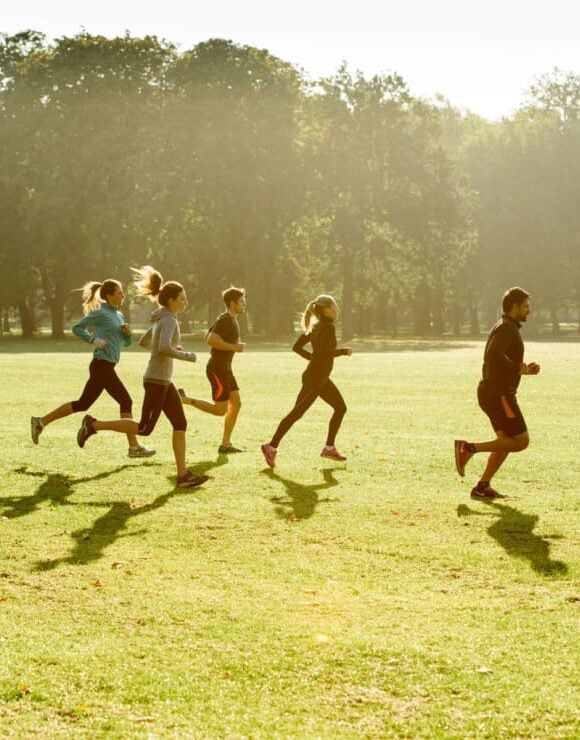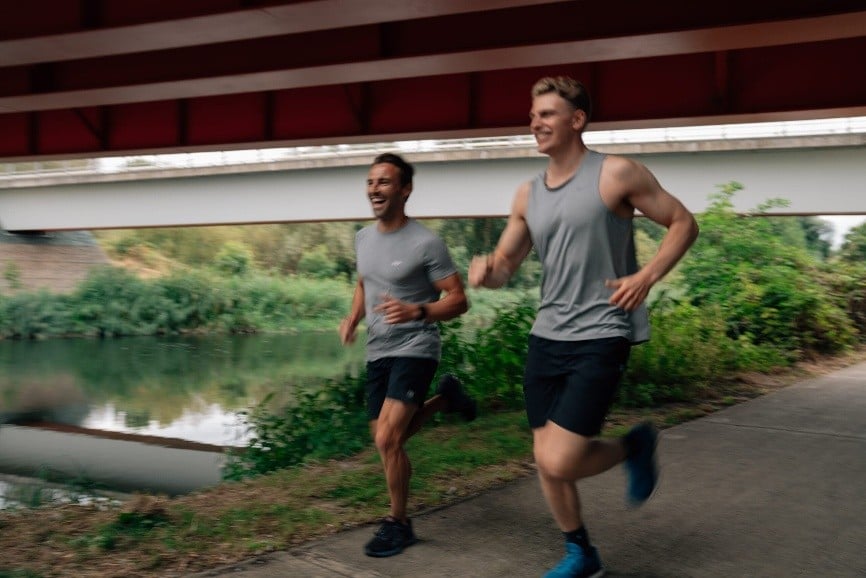Rest & Recovery: Essential for Marathon Runners

Dawn Nunes
Advanced Practitioner Physiotherapist
- 14 November, 2024
- Running
- 4 min read
For long-distance runners, especially those preparing for a marathon, understanding, and implementing rest and recovery strategies is pivotal. This guide delves into the science behind rest and recovery, optimal timing for rest days, the role of sleep, and how recovery reduces injury risks—all crucial for peak athletic performance.

The Science Behind Rest and Recovery for Runners
In the world of long-distance running, rest and recovery are not just about taking a break; they’re fundamental components of an effective training regimen. When you run, particularly over long distances, your muscles endure substantial stress and microtrauma. Rest and recovery periods facilitate muscle repair and growth, allowing the body to adapt to the increased demands of training. This physiological process is essential for improving endurance, strength, and overall running performance.
Rest and recovery also play a critical role in maintaining hormonal balance. Training places stress on the body, which can elevate cortisol levels, a hormone associated with stress. Prolonged high cortisol levels can lead to fatigue, decreased immune function, and even injury. Thus, incorporating rest days into your training helps regulate these hormone levels, supporting overall health and performance.

Optimal Timing for Rest Days in Marathon Training
The timing of rest days is crucial in a marathon training schedule. While the frequency of rest days can vary based on an individual’s fitness level and training intensity, a general guideline is to incorporate at least one full rest day per week. This rest day allows the body to recover from the cumulative fatigue of training and prepares it for the upcoming workouts.
In the weeks leading up to a marathon, tapering becomes an essential component of the training plan. Tapering involves gradually reducing training volume while maintaining intensity. This strategy ensures that the body is well-rested and primed for optimal performance on race day. During the tapering period, it’s common to increase rest days and focus on lighter, more strategic workouts.
It’s important to mention that during any training plan, we still need to listen to our body. If you are going through a stressful time maybe at work or in your personal life, our body isn’t able to distinguish one stress from the other so if you are exhausted an additional rest, or easy day, may be more beneficial than pushing through.
The Role of Sleep in Enhancing Running Performance
Sleep is often the most overlooked aspect of recovery, yet it is one of the most powerful tools for enhancing running performance, as this is the time that our muscles recover and grow stronger. During sleep, the body undergoes critical processes such as muscle repair, memory consolidation, and hormone regulation. For runners, getting adequate sleep is essential to support these processes and to recover effectively from training sessions.
Athletes are generally recommended to aim for 7-9 hours of sleep per night, though some may require more during intense training periods. Quality sleep helps to improve reaction times, boost mood, enhance concentration, and reduce injury risk. Prioritising sleep as part of a holistic recovery strategy can lead to significant improvements in training outcomes and race performance.
Therefore, trying to keep a good sleep routine – if possible – will help you get better quality sleep. Aiming to go to bed and wake up at similar times both in the week and the weekend will help your body know when it’s time to rest and when it’s time to run.
Incorporating Active Recovery into Your Routine
Active recovery is a valuable component of a runner’s routine. Unlike complete rest, active recovery involves engaging in low-intensity activities that promote circulation and aid muscle recovery. Activities such as walking, cycling, swimming, or yoga can facilitate active recovery by increasing blood flow to muscles without adding excessive strain.
Incorporating active recovery days into a training schedule can enhance overall fitness by improving cardiovascular health and flexibility. These activities also provide a mental break from the rigors of structured training, helping to prevent burnout and maintain motivation.
How Recovery Reduces the Risk of Injuries
Injury prevention is a significant concern for marathon runners, given the high physical demands of the sport. Proper recovery practices are among the most effective methods for reducing the risk of injuries. Overtraining without adequate rest can lead to common running injuries such as stress fractures, tendonitis, and muscle strains.
By incorporating rest and recovery into a training plan, runners allow their bodies to heal and adapt to the stresses of training. Recovery strategies such as stretching, foam rolling, and massage can help alleviate muscle tension and improve flexibility, further reducing the likelihood of injury. Listening to your body and recognising early signs of fatigue or discomfort can also prevent injuries before they occur.
Balancing Training Intensity with Adequate Recovery
Balancing training intensity with adequate recovery is key to achieving peak performance and avoiding burnout. While it may be tempting to push harder and train more, especially when preparing for a marathon, it is essential to strike a balance. Too much intensity without enough recovery can lead to diminished returns and increased injury risk.
The main thing to consider is consistency. Use the 10% rule – increase the intensity or weight you use by max 10% per week.
Listening to your body and adjusting your training plan as needed can help maintain this balance. Utilising tools such as heart rate monitors and perceived exertion scales can assist in monitoring training load and ensuring that recovery is prioritised. Remember, recovery is not a sign of weakness; it’s a strategic approach to achieving sustained athletic success.
In conclusion, understanding the importance of rest and recovery can transform your marathon training experience. By prioritising rest days, optimising sleep, incorporating active recovery, and balancing training intensity, marathon runners can enhance their performance and reduce the risk of injuries.
Embrace these strategies to unlock your full potential and cross the finish line with confidence and strength.

Advice
Over the last 20+ years our experts have helped more than 100,000 patients, but we don’t stop there. We also like to share our knowledge and insight to help people lead healthier lives, and here you will find our extensive library of advice on a variety of topics to help you do the same.
OUR ADVICE HUBS See all Advice Hubs

